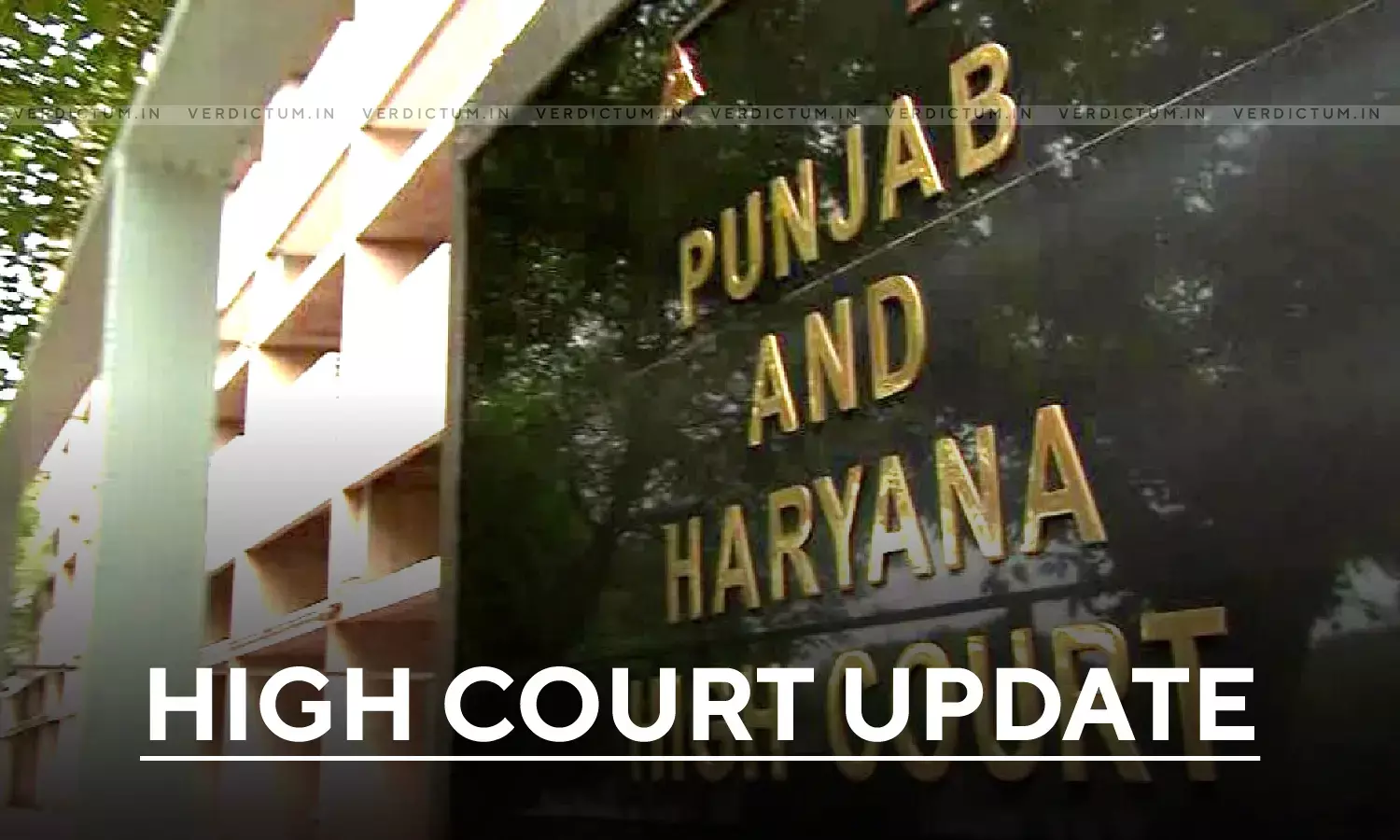High Court Orders Fresh Assessment Of Security Threat To Protectees In Punjab

The Punjab and Haryana High Court has ordered fresh assessment of security threat of protectees after several protected individuals in Punjab had approached it against the withdrawal and de-categorization of their security cover.
While hearing a batch of 45 petitions filed among others by former Punjab Deputy Chief Minister O P Soni, the court said it cannot lose sight of the fact that decategorisation of security may sometimes prompt inimical anti-social elements to take drastic step to overcome the decategorised security in order to attack the protectee.
"In order to ward off the continued apprehension of the protectees in view of bringing the issue of withdrawal of security under public domain, this Court is of the opinion that the competent authority should make fresh assessment in respect of security threats of protectees after considering the available inputs from different agencies including State and Central," the High Court ordered.
The competent authority should also consider the inputs to be provided by the individuals/protectees by giving them adequate notice, the bench of Justice Raj Mohan Singh said in his order on Tuesday.
"The impression which has been given by bringing the impunged action under public domain can only be cured by undertaking fresh security review in accordance with law and that too by appreciating and considering various inputs of the State and Central agencies as well as the inputs to be provided by individuals/protectees at the time of such assessment," the Bench observed.
On the issue of alleged leak of details of the protectees whose security was withdrawn by the state, the court noted that the state security review was held by a designated committee on February 2, 2022 in respect of 557 protectees, which was not leaked.
Another review done on March 29, has come under the public domain.
The State security review done by the Committee on March 29, 2022 has come in public domain and so as the later security reviews, the Bench observed.
The court made it clear that the existing security cover provided to the protectees, even under the orders of the court, shall remain in force till fresh assessment is made.
The interim arrangement shall remain in force specifically till fresh assessment is conducted according to State Security Policy without creating any equitable right of consideration in favour or against the protectees, it said.
All these events are subjective in nature and no general opinion can be formed at this stage as the same is the State subject for which the competent authority is to form an opinion on the basis of different inputs, it further said.
The court also observed that security issue is not a static phenomenon, rather it is a dynamic process.
"Security reviews have to be done on periodical basis by assessing the security threat of the protectees with the passage of time on the basis of official inputs provided by the different agencies including State and Central agencies," it observed.
According State Security Policy, the police officers are recruited, trained and maintained at a huge cost to be borne by taxpayers, it said.
"These trained police officers/officials are to be deployed for the protection of the community. Provision for granting security covers of police officers to individuals for their protection at the cost of taxpayers has to be viewed as an exception and not as a rule", the Court said.
"This Court cannot substitute itself in place of the competent authority and cannot substitute its decision for that of competent authority in respect of threat perception entertained by a protectee or individual. The threat perception has to be real, based on intelligence reports from different quarters," it said.
The Bench further observed that demand of security cannot be on the basis of displaying an authority of symbol or to flaunt the status as a very important person.
No privileged class can be created on the State's expense by using money of taxpayers, it said.
"Personal security cover cannot be claimed as a matter of right and in perpetuity. The security threat has to be assessed on the basis of intelligence inputs from different agencies and if the protectee has a real threat, his threat perception in the form of inputs can also be considered by the competent authority in order to rule out any such real threat if at all exists as per perception of the protectee," it observed.
With PTI inputs

